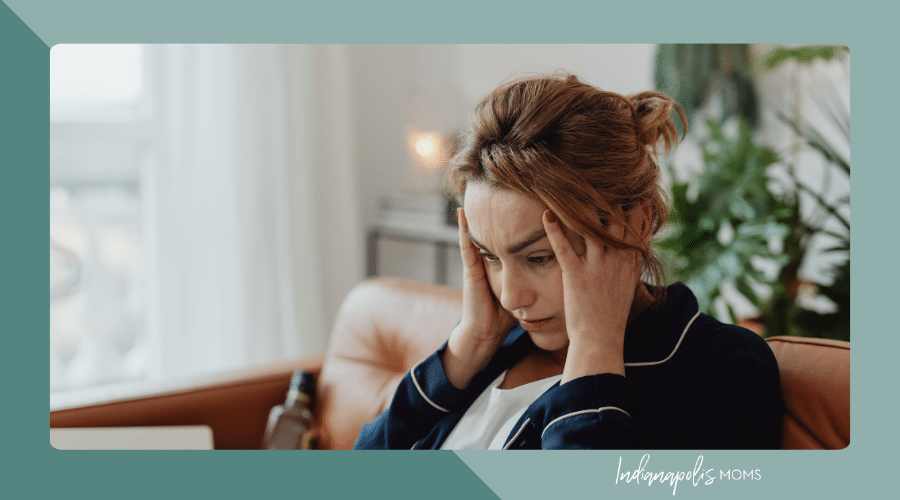
Disclaimer: At Indianapolis Moms, we believe in sharing personal stories and experiences from local moms. Please remember that this post reflects one writer’s personal journey and is not intended to serve as medical advice. Always consult with a qualified healthcare provider for any medical concerns.
I’m 41 years old and last month I survived a stroke. I’m overwhelmed and a little astonished to write those words. And I feel compelled to share my experience in the hopes that another woman might learn the signs that I ignored.
At the end of March, my family kicked off our spring break staycation with Influenza A and a stomach bug that had my seven-year-old down bad for a day. As I stroked his forehead and held his hands, I joked to my husband that I was likely next. Like most moms, I’m the primary comforter even when that means catching vomit in my hands and sneezes in my eyes. I was not surprised when I felt rough less than 24 hours later.
The next morning, I was writing an email and lost vision in my right eye. I had floaters and fuzziness that seemed to come from nowhere. I felt perfectly fine otherwise, but my husband recommended I go back to bed, and I didn’t make it down the hall before I’d lost my balance and needed him for support. The excruciating headache, vomiting and dizziness that followed left me disoriented and shaking. I honestly have very little memory from the next 8 hours, but I was extremely dizzy, and I couldn’t keep anything down. The headache felt like the worst migraine of my life so the next morning we went to the ER, where I tested negative for Influenza A, B and Covid before being treated with the standard migraine cocktail via IV. I left on my own two feet and slept most of the next few days.
Then the nearly daily migraines started. I would experience vision loss with each headache, some vertigo and piercing pain behind my eyes. I was suddenly extremely sensitive to light—with migraines triggered moments after stepping into the sun or entering a store with fluorescent lights. I worked with my primary care doctor to start migraine medication but after 12 migraines in less than three weeks, her office ordered an MRI.
The MRI was concerning, and I was sent to IU Methodist ER for a stroke workup, where through a series of tests, they determined that weeks prior I’d suffered an arterial vein dissection in my cerebellum that had created a clot and caused a stroke. The migraines I’d been experiencing were a part of my brain’s desperate attempt to heal from the trauma it had experienced back at the start of my staycation.
Neurologists like to say that “time is brain” and the brain tissue that I lost in my stroke is permanently unrecoverable. Had I been treated for my stroke within the first 12-24 hours, there’s a good chance that blood flow would be restored to the parts of my brain that were affected on March 30th.
I’m unbelievably, astoundingly lucky that I’m no worse for wear. I’m tired and a little lightheaded and the migraines may continue for a while, but I’m not relearning how to read or walk or hug my children and I’m dumbfounded by my luck.
For women, stroke symptoms may look surprisingly like migraine symptoms, but it’s critical that they are not ignored. According to the American Heart Association, both men and women may experience symptoms such as facial drooping, arm weakness, speech difficulty, vision changes and coordination challenges. But women may also experience more subtle signs such as general weakness, nausea, vomiting, confusion, memory issues and disorientation.
Please take the time to learn the acronym BE FAST and know that it’s critical to get help quickly!
Balance
Eyes
Facial Drooping
Arm Weakness
Speech Difficulty
Time to Call 911








